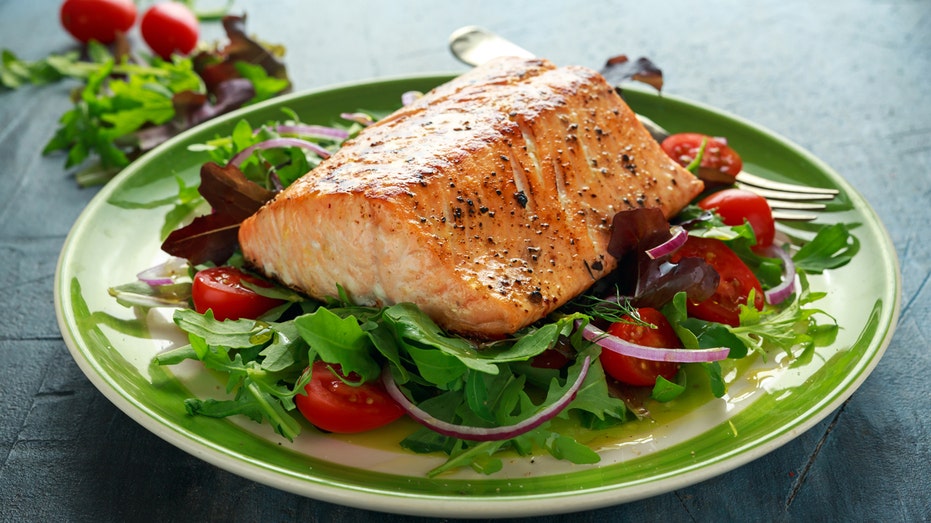
With winter weather keeping most people indoors and out of the sun, here are foods that can help boost the body’s vitamin D intake, a nutritionist advises.
Vitamin D is an important nutrient but one that people tend to lack during the winter months. Vitamin D helps keep bones strong and works to support the body’s immune system.
The main way people get vitamin D is through sunlight — but with the shorter days and colder temperatures, spending time outdoors can be a challenge.
To make up for the lack of sunlight, certain foods can provide an extra boost of vitamin D, Laura Manaker, a South Carolina-based dietitian and nutritionist, told Fox News Digital.
MAKE AMERICA HEALTHY AGAIN: THE POWERHOUSE FOODS THAT WORK MEDICAL MAGIC
“Combining tasty, vitamin D-rich foods with outdoor time on sunny days can help ensure your body gets what it needs, even in winter,” she said.
These four foods can boost your body’s vitamin D intake.
Any sort of fatty fish like mackerel, salmon and sardines will come with a side of vitamin D, Manaker said.
A 3½-ounce serving of sockeye salmon contains an average of 670 international units (IU) of vitamin D, more than the recommended daily value for a person under age 70, according to the U.S. Department of Agriculture’s website.
FROM SALMON TO SHARK, HERE ARE THE BEST AND WORST FISH FOR YOUR HEALTH, ACCORDING TO EXPERTS
The source of the fish, however, matters. A study by the National Institutes of Health found that farmed salmon has considerably less vitamin D content than wild-caught salmon.
Eggs are another great source of vitamin D. A single egg yolk contains more than a third of a person’s recommended daily amount of the nutrient, according to the USDA.
DOES THE COLOR OF AN EGG’S YOLK MEAN ANYTHING?
Adding eggs to a salad or sandwich can provide an easy vitamin D boost.
Mushrooms are unique, Manaker said, as they are the “only produce-aisle item capable of producing vitamin D.”
WHY HARDBOILED EGGS AND 4 OTHER FOODS SHOULD NOT BE REHEATED IN THE MICROWAVE
“When exposed to [ultraviolet] light, mushrooms can naturally synthesize vitamin D, similar to how our skin does when exposed to sunlight,” she said.
To better maximize the vitamin D levels of mushrooms, people can sun-dry them at home or look for mushrooms that are labeled “UV-exposed,” Manaker said.
CLICK HERE TO SIGN UP FOR OUR LIFESTYLE NEWSLETTER
“One of my favorite ways to increase vitamin D levels is by enjoying a hearty mushroom soup or adding roasted mushrooms to salads and sandwiches during the colder months,” she said.
Starting the day with vitamin D is easier when consuming common breakfast foods that have been fortified with extra nutrients.
For more Lifestyle articles, visit www.foxnews.com/lifestyle
“Fortified foods such as dairy milk, fortified orange juice and certain cereals are also effective options,” Manaker said.
Milk can be fortified with up to 84 IU of vitamin D per 100 grams, according to the Food and Drug Administration’s website.
It’s best to check the nutrition labels of cereal and orange juice to see how much extra vitamin D can be added to a morning meal, experts say.